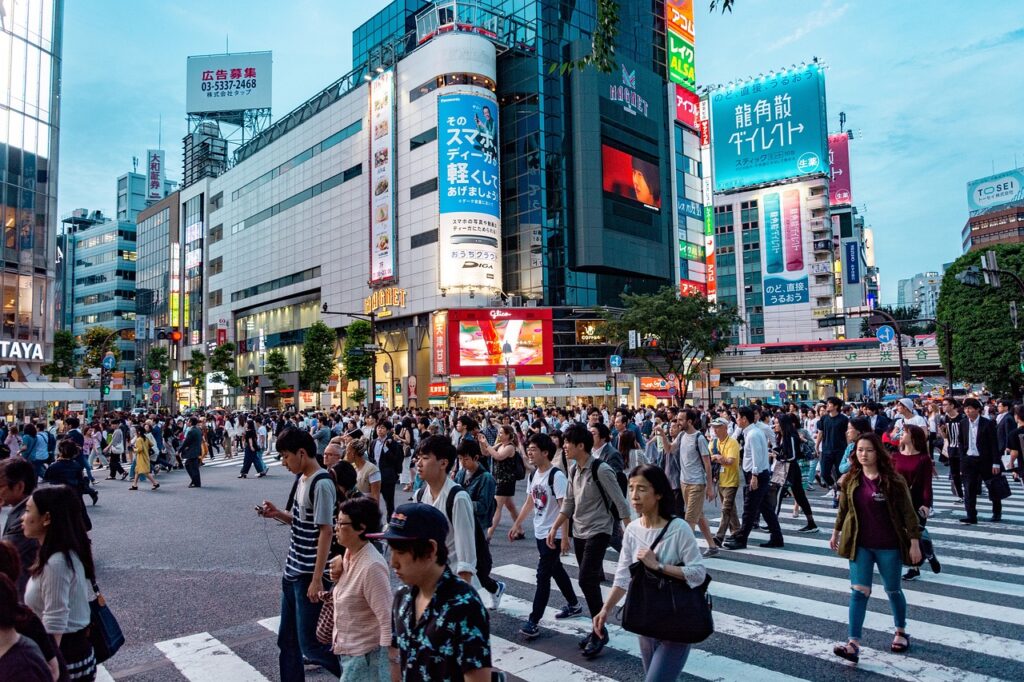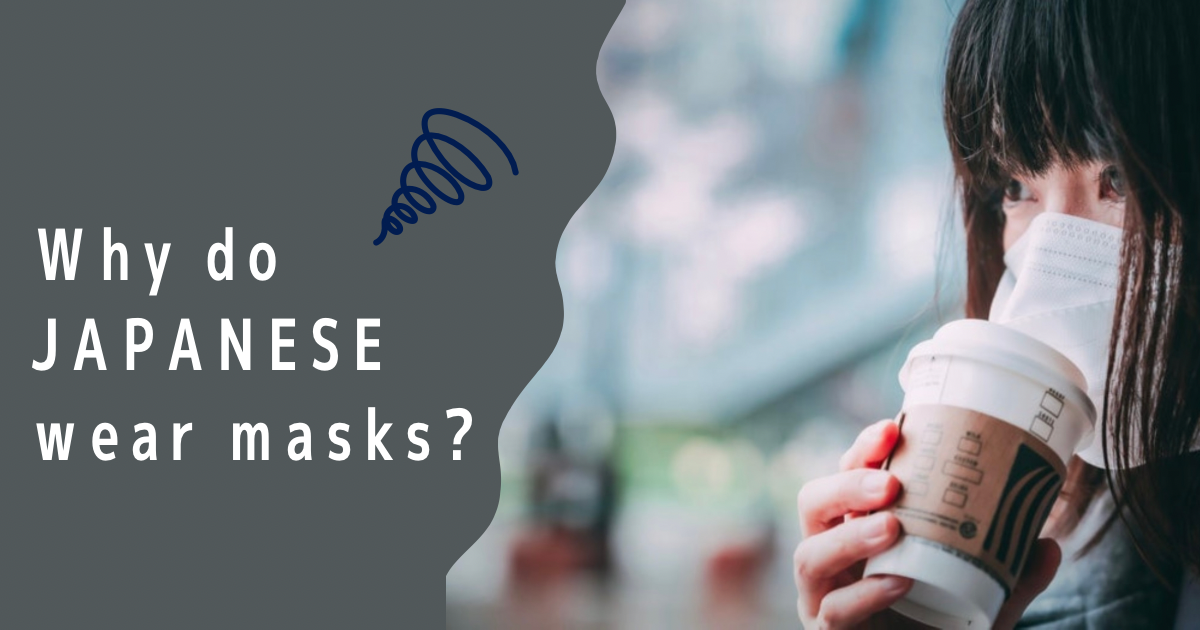If you have a chance to stay in Japan, you might find that majority of Japanese still wear masks even if the coronavirus restriction has been all lifted and the Japanese government announced that wearing a mask was your personal choice on 13 March.
Then you might wonder how come they continue to wear masks or what kind of psychological thinking they have.
Also, you could possibly feel peer pressure of wearing masks in Japan as well, and wonder it could make a negative impression on Japanese friends or business partners unless wearing masks.
In this article, I’d like to introduce why Japanese wear masks and hope you understand the Japanese way of thinking.

Let me introduce myself.
I am Hiro from Tokyo, Japan, and I was born and raised here.
Do Japanese still wear masks?

If you are outside in Japan, you still find the majority of Japanese are wearing masks in Japan even though all the restrictions of Covid 19 have been lifted in Japan and the Japanese government announced masking is unnecessary (personal choice) in Japan.
Mask-wearing ratio
Based on AI research by the Japanese broadcast “Nihon Terebi”, 89.7% of people were wearing masks at Tokyo station on 13 March 2023 when officially mask-wearing became a personal choice not by their rules.
The same research was carried out again on 10 April and still there were 85.6% of Japanese people wearing masks at Tokyo station.
Reference:
https://news.ntv.co.jp/category/society/f11ddb75d4064eea9cd24a65a92d615d
Japanese don’t like to take off masks
Also, based on research of 1200 people by a consultant company ”Glocomm” in July 2022, 53.3% of Japanese people are reluctant to take off masks to communicate even though the contagious virus no longer exists.
Reference: https://www.glocomm.co.jp/2022/09/27/【プレスリリース】深刻な「コロナコミュ障」の/
Even my wife complains to me if I take off masks, especially inside trains or supermarkets telling me that please consider having a pregnant wife at home (My wife is pregnant now)
You might wonder why such a number of Japanese continue to wear masks even though the mask-wearing is not mandatory in Japan.
The reasons Japanese wear masks

There are several reasons why Japanese continue to wear masks.
Thorough risk avoidance thinking
Japanese are extremely careful towards any risks not only coronavirus.
Japanese usually don’t invest and keep depositing cash at banks to avoid risks
and Japanese often don’t change job easily to risk and rather keep working in one company for life time.
When I told my father that I changed a job, he reacted negatively. (Especially older generations don’t have positive idea of job changing in Japan.)
The way of thorough risk avoidance thinking is everywhere in Japan.
Due to the culture in Japan, the Japanese are extremely careful about spreading the virus even if the number of patients decreased and they still choose to wear masks.
Masks have been already part of their life
For many Japanese, mask-wearing has been part of their lives because there are a lot of Japanese (around 50% of Japanese) who suffer from hay fever every year due to many cedar trees in Japan.
It had been already spontaneous to see mask-wearing people even before 2019 when coronavirus pandemic didn’t occur.
Therefore, Japanese get used to wearing masks originally.
To hide their faces, some Japanese continue to wear masks
There are some Japanese who continue to wear masks to hide their faces because they could avoid making up their faces.
Most of Japanese ladies make up even when they go out to a convenience store near their home.
It is also part of etiquette that Japanese ladies make up when they work. (There is a little pressure for ladies)
Mask-wearing could be one of the better choices for some people to avoid making up outside.
Even I myself sometimes wear mask to hide my beard face as well because beard face sometimes make negative impression to some Japanese and using shaver everyday damages my skin, so there is no choice.
Peer pressure
Peer pressure is part of culture in Japan.
We Japanese always wonder what others are thinking about us and then decide our behaviour.
It is because Japanese society is based on collectivistic culture and the opinion of majorities or high positions people (e.g. Supervisors or teachers) are often well considered and minorities or low position people usually follow them.
The minorities or low-position people often don’t make a wave and just be quiet in Japan.
The mask-wearing could be one of them, and the majority of Japanese still wear masks, so there are many pressures for others who don’t like masks end up wearing masks.
Should non-Japanese also wear mask in Japan

Now if you are non-Japanese you might wonder whether you should wear masks while staying in Japan, but if you stay in Japan for a short period just for travelling, in my opinion, you don’t need to wear a mask.
Again, there is no rule of mask-wearing by the Japanese government and Japanese usually don’t feel anything even if non-Japanese people don’t wear masks.
However, if you come to Japan to for a business trip and meet your Japanese customer, you could possibly choose to wear a mask, because, on business occasions, more Japanese tend to wear masks still and your customer possibly feel a little uncomfortable without wearing a mask during a meeting since still there are some cases of coronavirus infection.
In conclusion
In this article, I introduced why Japanese wear mask and hope you overall understand it.
It is your personal choice wearing a mask and if it is in business occasions, wearing masks is more preferred in Japan.
Thank you for reading this article till the end.



コメント Comment